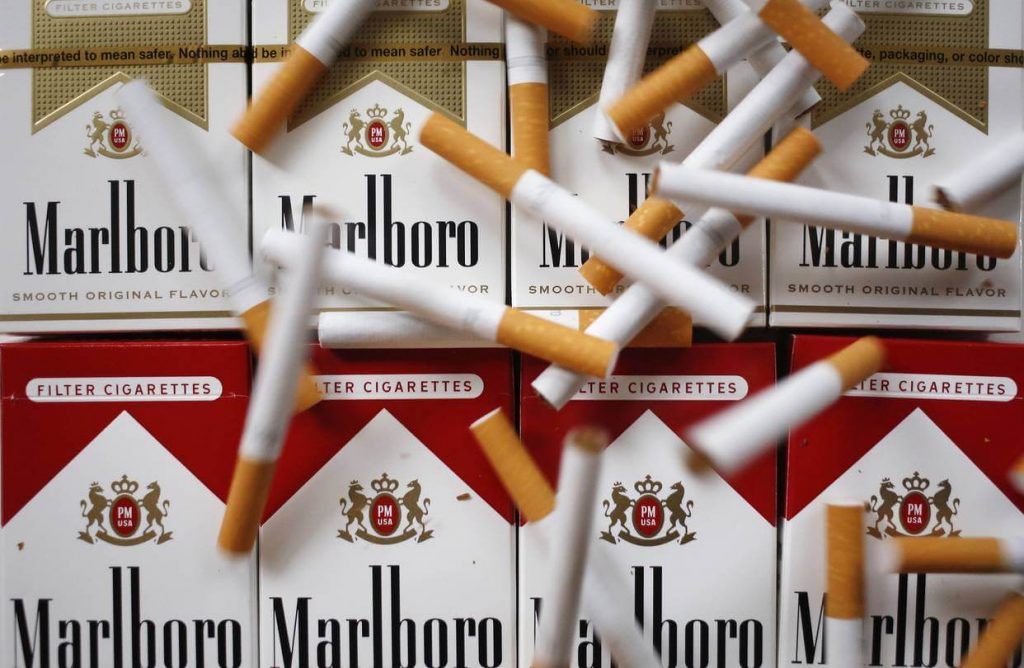Philip Morris (Pakistan) Limited announces financial results for the year ended December, 2021
ISLAMABAD ( Web News )
Philip Morris (Pakistan) Limited (PMPKL) posted a profit after tax of PKR 2,307 million for the year ended December 31, 2021, compared to profit after tax of PKR 1,765 million for the same period prior year. The Company’s net turnover during the same period stood at PKR 17,459 million reflecting an increase of 5.2% versus last year. PMPKL continued to extend its role for strengthening the economy through Company’s contribution to the National Exchequer, in the form of excise duty, sales tax, and other government levies, stood at PKR 26,673 million, with an increase of 14.8% vs. last year, reflecting 60.5% of the Gross Turnover.
The tax-paying cigarette industry continues to face challenges due to the lack of a level playing field due to the tax evasion and violations under tobacco control laws by the non-tax paid illicit cigarette manufacturers. The Government has made efforts to curb the non-tax paid illicit sector to help strengthen the economy by improving the contribution to the National Exchequer. No change in excise rates for the last two fiscal years led to consumer price stability of the legitimate cigarette brands which is critical to ensure that the price gap with non-tax paid brands doesn’t stretch further (current price gap between legitimate and non-tax paid brands is over 200%). This wide price-gap between tax-paid and tax-evaded cigarette brands has been the primary driver for the growth of illicit cigarette trade in Pakistan. Excise driven price increases have contributed to the growth of the illicit segment, which has been addressed by the FBR by not increasing excise duty on cigarettes during the federal budget. This policy move by the FBR witnesses a positive outcome for the tax-paid cigarette industry and the growth in Government Revenue.
The FBR has recently issued the license for track and trace system for the tobacco industry in Pakistan, which is currently in the process of being implemented. We believe this can be a very effective tool to counter illicit cigarette trade, however, it is important to recognize that without an effective enforcement mechanism this initiative may not prove to be successful. It is therefore critical that across-the-board implementation is ensured for affixing tax stamps on each packet sold in the market to help curb the non-tax paid illicit sector through identification of non-tax paid cigarette brands.
Commenting on the effects of illicit on the overall economy, Roman Yazbeck, Managing Director at PMPKL said, “We are fully committed to contribute to Pakistan’s economy by generating employment and through our contribution to the national exchequer. While Pakistan’s economy is facing challenges due to existing macroeconomic factors, the non-tax paid illicit sector continues to add to economic woes. These non-tax paid players not only create an uneven playing field for the compliant tax-paying sector they also violate tobacco marketing and promotion restrictions and also damage the economy with massive tax evasions”.
Talking about the sustainability initiatives PMPKL undertook during last year, Yazbeck added, “In line with our sustainability agenda PMPKL has been taking continuous measures to reduce our carbon footprint and to conserve the environment. Conversion of leaf boiler plant from furnace oil to LPG at our Green Leaf Threshing Plant in Mardan and driving behavioral change through clean up drives across the country are part of our commitment towards environment sustainability. PMPKL also played a key role by paving way for sustainable solutions for socio-economic issues while enabling the youth of the country by supporting startups and entrepreneurs. In addition, the Company introduced work policies to support an equal workplace environment for which it also received recognition across multiple platforms. We are determined to create social environmental and economic value for all our stakeholders and for the society at large”.

